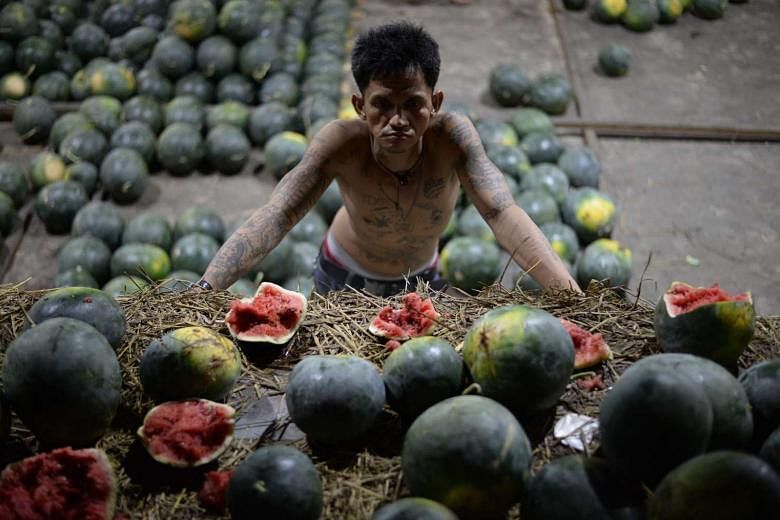From the perspective of the Philippines, it is a game changer, maybe the biggest in Asia since China joined the World Trade Organisation in 2001.
But nobody seems to be expecting a big bang when the AEC formally takes off at the end of this year.
Tariff concerns have already been tackled in the past several years. Next comes the dismantling of non-tariff barriers and the standardisation of procedures, among other things, to pave the way for a real free flow of trade, investments, capital and labour across the region.
But are Filipinos, one out of every six Asean residents, ready to capture the opportunities and overcome the challenges posed by the AEC?
Ask the man on the street what he thinks about Asean and chances are you will get a blank stare. Most micro, small and medium-sized enterprises are yet to be oriented on the basic building blocks of the AEC.
The integration of Asean will boost competition but will also mean greater market scope even for small industries able to capitalise on the Internet's potential.
In terms of institutional sophistication, Filipinos lag behind the Thais, Singaporeans and Malaysians, said Mr Manuel Salak, a Filipino banker based in Singapore at Dutch financial giant ING Bank.
"In different sectors, if you want to be a part of one community, there is this practical consideration that your own guy should be able to play in the same league. It's like basketball," Mr Salak said.
The good news for the Philippines is that, among top-tier corporations, awareness appears much higher. Most top conglomerates have long prepared for regional competition. Many are intensifying offshore expansion with the creation of the AEC adding impetus to their efforts.
"The most important aspect of the Asean integration is changing our mindset," said Jollibee Foods chief finance officer Ysmael Baysa. "I believe that what Asean integration will do is accelerate infrastructure development."
Since 2004, Jollibee has been expanding overseas while growing its domestic business.
"If you're looking at Asean integration only now, you're too late," JG Summit Holdings senior vice-president and chief strategist Bach Johann Sebastian said.
JG Summit is one of the Philippines' largest conglomerates with interests in air transport, banking, food manufacturing, property development, and more. It started its regional expansion 20 years ago.
Conglomerate San Miguel, Southeast Asia's largest food, beverage and packaging company which has diversified into other concerns such as infrastructure and telecommunications, has been aggressively investing across the region.
The country's Department of Trade has been helping local industries prepare for both the tougher competitive environment and the opportunities that the AEC will present by boosting their capabilities and enhancing their efficiency, as well as continuously harnessing the skills of the local labour pool.
The Philippines will also need to build new infrastructure to sustain growth. Only when growth is sustained for decades can more people be lifted out of poverty. "We have to build. We have to build fast. We have to build plenty," stresses Mr Guillermo Luz, co-chair of the National Competitiveness Council representing the private sector.
Asean integration is also seen to require huge investments in human capital though the English proficiency of Filipinos is already a big advantage.
If, and when, more Asean companies set up shop in the country, local firms will have to brace themselves for higher overhead costs. The newcomers are expected to poach skilled people, which will likely drive wages higher in the short run.
The Philippines also needs to work on linking up its capital markets to the region. Efforts to link regional stock exchanges in line with AEC objectives, which have made some progress, need to be stepped up. But the Philippine Stock Exchange has yet to join this regional trading platform because the Philippine corporate regulator is not yet a member of the global body that regulates world securities.
PHILIPPINE DAILY INQUIRER/ASIA NEWS NETWORK

